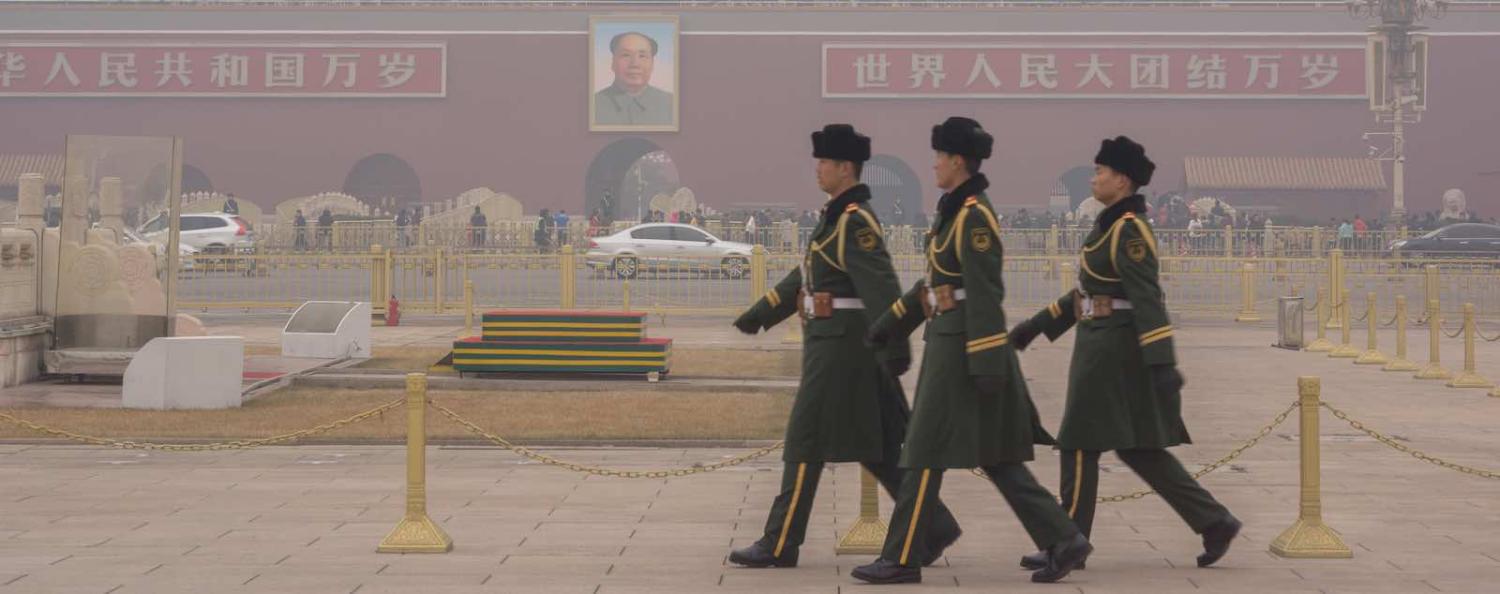Just as the Trump-Xi meeting at the G20 produced a glimmer of hope for mutual de-escalation, the US-China trade war has taken its ugliest turn yet.
Last week, Beijing detained two Canadians, Michael Kovrig and Michael Spavor, in retaliation for Canada’s arrest of Huawei’s Chief Financial Officer, Meng Wanzhou, in response to a US extradition request.
Kovrig’s arrest sends a chill through China watching communities around the world. It suggests serious new risks for researchers who interact with government officials and academics who seek to understand Beijing’s foreign policy.
To clear up the basics: the US is pursuing Meng on bank fraud charges, not for violating unilateral US sanctions on Iran, as has often been presumed. Julian Ku has detailed how US prosecutors had been building a case against Meng for months over a presentation she gave to HSBC bank.
That doesn’t mean the Meng case had nothing to do with geopolitics: the US policy of enforcing laws more strictly on Chinese targets than it has in the past is part of the Trump administration’s more confrontational China policy.
Trump himself subsequently commented that, if Meng is eventually extradited to face US charges, he might intervene to release her “if I think it will be good for what will be the largest trade deal ever made”.
Still, even if we assume both cases are geopolitically motivated, they are still not equivalent. Meng was detained transparently according to a clearly defined process, on the basis of evidence that was sufficient to convince Canadian judges her detention was warranted, had hearings in open court with her friends and family present, and is now out on bail.
Kovrig and Spavor have just vanished. Official information on their alleged crimes has been limited to “suspicion of engaging in activities that harm China’s state security.” But China’s Ambassador to Canada and state media in the People’s Republic of China have subsequently made clear that the two Canadians are hostages.
Rather than focus on the wrongs of such tactics, I want to draw attention to the possible consequences.
Most obviously, China’s decision to target Canadians, rather than Americans, has worrying implications for Australians in China, as it suggests a strategy of targeting the US via its allies.
The PRC actually has a history of arresting Canadian entrepreneurs to pressure Ottawa over US extradition requests, as noted by Kim Richard Nossal last week. But the decision to target Kovrig, the International Crisis Group researcher, is particularly ominous because of his occupation.
Kovrig’s arrest sends a chill through China watching communities around the world. It suggests serious new risks for researchers who interact with government officials – such as think-tankers, journalists, and academics who seek to understand Beijing’s foreign policy.
As the ICG has stated, Kovrig in his job “met dozens of Chinese officials to share our analysis and policy ideas and ensure the Chinese government’s views are accurately reflected in our work”. According to the Brussels-based think tank’s president, “Far from being secretive, Michael’s work was open for all to see, Chinese officials first and foremost.”
During the Mao era, outside a tiny stratum of “friends of China”, visitors from the capitalist world were generally understood as hostile agents of imperialism, or worse. Since the 1970s, the PRC has recognised the value of interactions with foreigners tasked with interpreting the party-state’s actions and understanding how international events were viewed from Beijing.
Trouble for foreign researchers has usually concerned “sensitive” topics such as Tibet and Xinjiang, human rights, and opposition to the regime. Even then, foreign reporters and researchers have been far more likely to face obstruction and interference (or, more rarely, expulsion) than jail time.
An early warning may have been the 2017 case of Sydney University professor Feng Chongyi, who was detained for a week after a trip that included meetings with human rights lawyers. But Feng was a PRC citizen, and most importantly, he was thankfully released after a week.
Kovrig’s arrest is a much more unequivocal warning to researchers from countries perceived to be in the “US camp” to be careful in China – and to be sure to follow current affairs while there. If an incident blows up between Australia and China, we might not want to stay there longer than necessary.
It will (and quite possibly should) lead to researchers spending less time in China and interacting less with Chinese officials and experts.
If China’s increasingly authoritarian system and the US-China trade war are the proximate causes of the episode, it’s also part of a more general narrowing of the space for social and political researchers amid an intensifying geopolitical power struggle.
This was manifested in elements of Australia’s espionage and foreign interference laws passed in June, particularly the criminalisation of “dealing with” a range of broadly-defined “information”, which threatens to put researchers on the wrong side of the law for innocuous interactions with government officials.
I’m not suggesting an equivalence between arbitrary detention in the PRC and legislative overreach in Australia. But they share the common effect of making it riskier to conduct research aimed at getting states to better understand each other’s actions and perceptions.
Kovrig’s arrest worsens the already bleak outlook for people-to-people ties, which along with economic cooperation have been one of the few consistent bright spots in the Australia-China relationship over the past decade.

